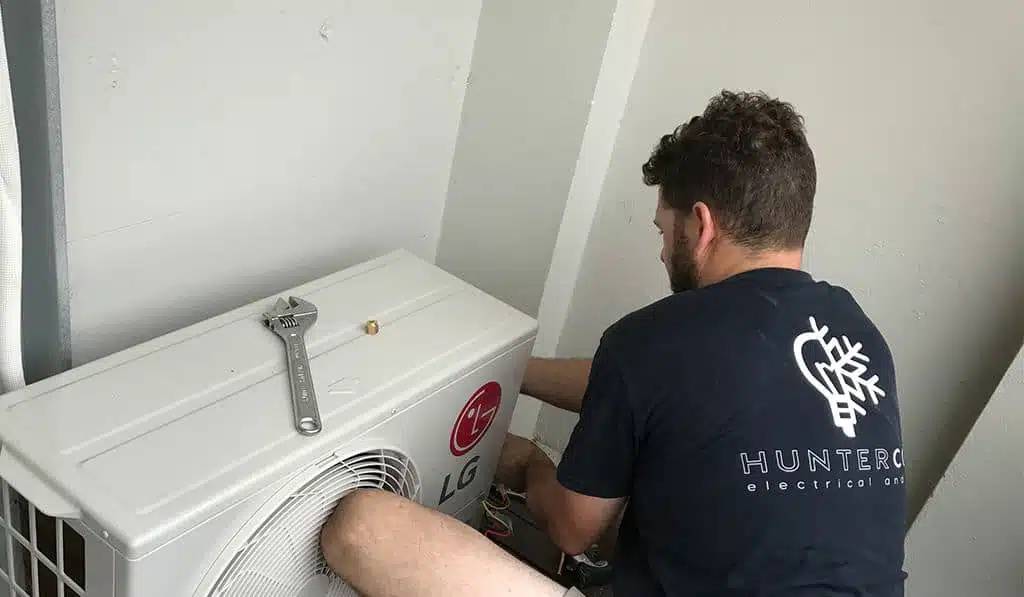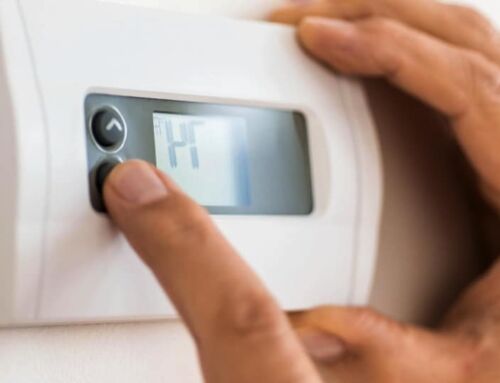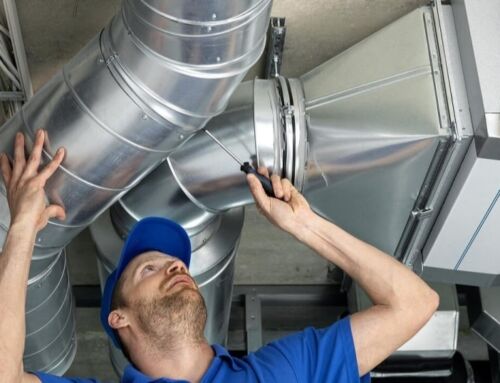Although relatively uncommon, regassing air conditioning is one of the key processes involved with split and ducted system maintenance and repair options. If installed correctly, an AC unit should not usually have to be regassed.
However, older units or those that weren’t installed by a professional installer may need to be assessed and serviced.
This involves checking for refrigerant leaks, fixing a leak if present, and replacing refrigerants if required.
Although a properly installed AC unit on either commercial or residential property should not leak any refrigerant, you may need to think about regassing at some point. Here’s everything you need to know about regassing air conditioning unit.
If you want to learn more, check out our other resources:
1. How Much Does Air Conditioner Cost In Sydney?
2. How To Choose The Best Type Of Air Conditioner
3. Pros and Cons of Air Con You Need to Know
5. What Size Air Conditioner Do I Need?
6. How Much Power Does An Air Conditioner Use?
What Is Air Conditioning Refrigerant?
Simply put, refrigerant is the substance that ‘conditions’ the air it blows. Without refrigerant, air conditioners, fridges or freezers wouldn’t exist.
It is a compound, either fluid or gas, that, when combined with components like components such as compressors and evaporators, creates hot and cold air.
Over the years, the common refrigerants used for air conditioning have changed in favour of new developments.
Older refrigerants may be chlorofluorocarbons or hydrochlorofluorocarbons, whereas newer refrigerants are hydrofluorocarbons, which are safer for the environment and offer greater efficiency.
How Does Regassing Air Conditioning Work?
In air conditioners, the refrigerant is housed in copper coils. Here they absorb heat and are transformed from a high-pressure gas to a low-pressure liquid. The indoor unit delivers this hot air to the outdoor unit, where it is exhausted.
The refrigerant then cools down, returning to its low-pressure gas form. A fan then blows air onto the cool coils, which then cools the air. This is distributed via the indoor unit. This cycle continues as needed.
Why Might You Need To Get Involved In Regassing Air Conditioning
Regassing air conditioning shouldn’t happen if they’ve been installed properly. Professional installers use special ‘flaring’ tools to make extremely tight connections. The pipes used are copper, which is not porous and won’t leak.
After installed, the system will then be tested to ensure it is stable and will hold for its lifetime.
The only reason that a unit may need to be regassed is if the pipe connections are not flared or tightened properly, or if the pipes are damaged somehow during their lifetime.
However, if you use a trustworthy, professional installer like us, you can be assured that you will never have to worry about regassing air conditioning.
How Do You Know If You Need To Upgrade Your Refrigerant?
Some kinds of refrigerants are outdated, and you may want to consider having it replaced. How do you know?
Head outside and take a look at the exterior unit. If it is labeled R12 or R22, it’s time to have your refrigerant replaced. These substances are older and are known to contribute to the greenhouse gas effect. The R22 started being phased out in 2010 and R12 was phased out in the 1990s. Hydrofluorocarbons (HFCs) like R410A and R134 is the standard today.
Extending the life of your air conditioner
Coming into the warmer season, it’s fair to say your air conditioner is going to be used a lot more. Having an air conditioner is a great way to make sure that your home remains cool and comfortable, even on the hottest and most sweltering days of the year.
It is also important to remember that air conditioners are machines that need to be maintained and cared for. The cost of replacing or repairing an air con unit can be very expensive, but there are things that you can do to extend the life of your air conditioner unit.
Check out these handy tips to help extend the life of your air conditioner so you can use it for many summers to come.
Replace filters
Replacing filters is one of the easiest things you can do to prolong the life of your air conditioner, however, it is very often overlooked.
Through replacing the filters when needed, you can keep your air conditioner running smoothly and efficiently. A dirty or clogged air filter means that your air conditioner has to work harder to keep your home cool, which results in higher energy costs for you and can lead to the need for premature and costly repairs.
Your air filter should be inspected monthly and replaced as necessary. Typically, air filter replacements cost just a few dollars at your local grocery store and take just a minute to install.
Clean air ducts regularly
If the air ducts in your home are dirty, your air con unit has to work harder to run, which ends up costing you significantly more.
Furthermore, leaky ducts will require an air con unit to work harder than necessary to keep your space nice and cool.
By taking the time to clean out your air ducts with a duster and/or vacuum cleaner on a monthly basis (at least), you can prolong the life of your air con unit and save yourself money on your energy bills in the process.
Types of meters
There are many types of meters that all have various components. Use this guide to identify what kind of meter you have and how to read it properly.
Give your AC a rest
Although it is hard to resist keeping the air conditioner on all day throughout summer, giving your AC a rest is very important. When air conditioners are constantly run, they tend to wear out quicker. It is important to turn the air conditioner off if you plan on leaving home for any length of time.
Allow air to circulate
Your Air Con unit works hard to pump cold air into your home, so proper airflow is needed for the air conditioner to operate efficiently. It is important to clear any obstructions from the air vents in your home.
Your system will not have to work as hard to circulate cool air in the home if all of the vents are opened and unobstructed, allowing the air to pass through freely.
Trim garden growth
If you have a central air con unit, make sure that it is free of obstructions that would keep it from circulating air properly such as trees and shrubs. Having shrubs and bushes growing too close to the unit can also cause it to overheat. Generally, the unit should have at least 36 inches of clear space around it for proper ventilation.
Next Steps
By following these basic tips, you can ensure that your air conditioner lasts you for a long time to come, helping you avoid unnecessary repair and replacement costs.
If you have any questions about prolonging the life of your AC or are looking for a quote for installations, repairs, or general maintenance, please don’t hesitate to get in touch with HunterCON today.
With over 9 years of experience under our belt, we pride ourselves on providing the highest quality of fast and efficient service. Our operations span the greater metro area, including the Eastern Suburbs, Lower North Shore and South West. We always respond quickly and aim to be on-site as soon as possible.






